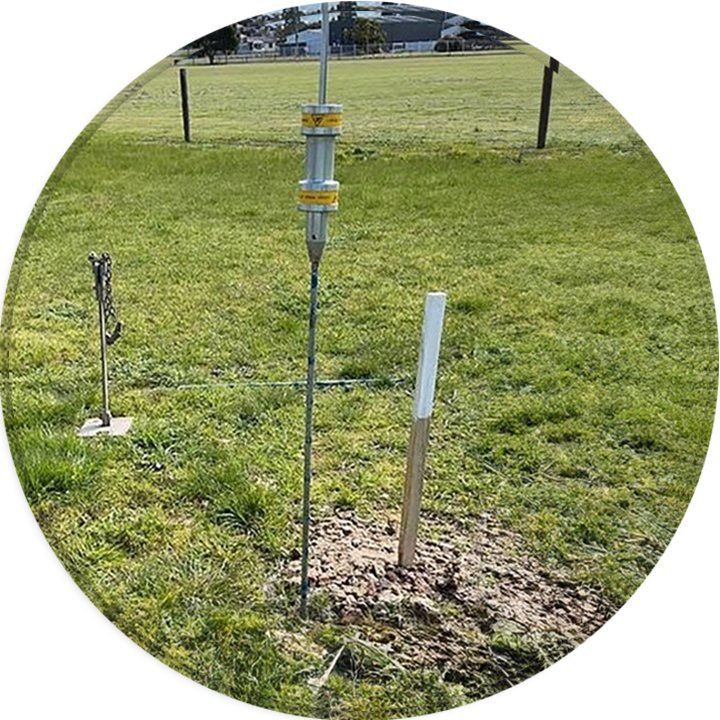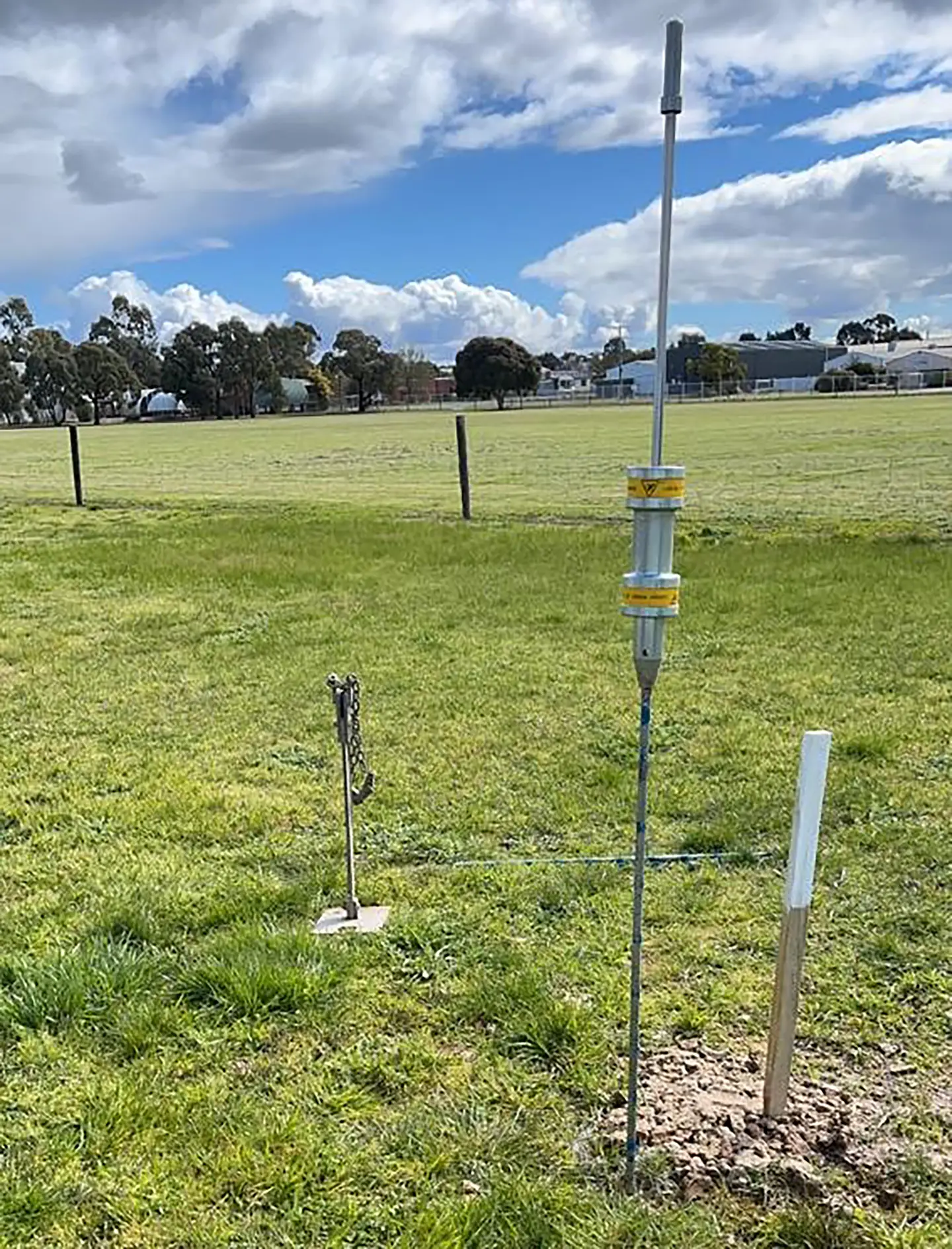
Dynamic Cone
Penetration testing (DCP)
AS 1289.6.3.2-1997
Uncover the secrets of your soil. Build a foundation for success with DCP testing.
Dynamic Cone Penetration Testing (DCP) is an in-situ test method used to evaluate the strength and density of soil layers beneath the ground surface.
Test Procedure
In DCP, a metal cone with a standardized mass of nine kilograms (9 kg) is dropped, typically through a guide pipe, onto the soil surface from a known height of 510 millimeters. Following each blow, the cone’s depth of penetration into the soil is measured and recorded.
Test Outcomes
DCP is helpful for early site investigations, pavement design, and construction quality control since it is a reasonably easy and affordable test with quick results. It can give important details on soil compaction, bearing capacity, and the existence of weak or soft layers. It works especially well with granular soils.
The test results are typically presented as penetration-depth versus number-of-blows curves, which are useful for determining possible trouble spots and evaluating differences in soil strength with depth. DCP testing is a feasible option for a variety of geotechnical applications as it can be completed rapidly and with little equipment.

